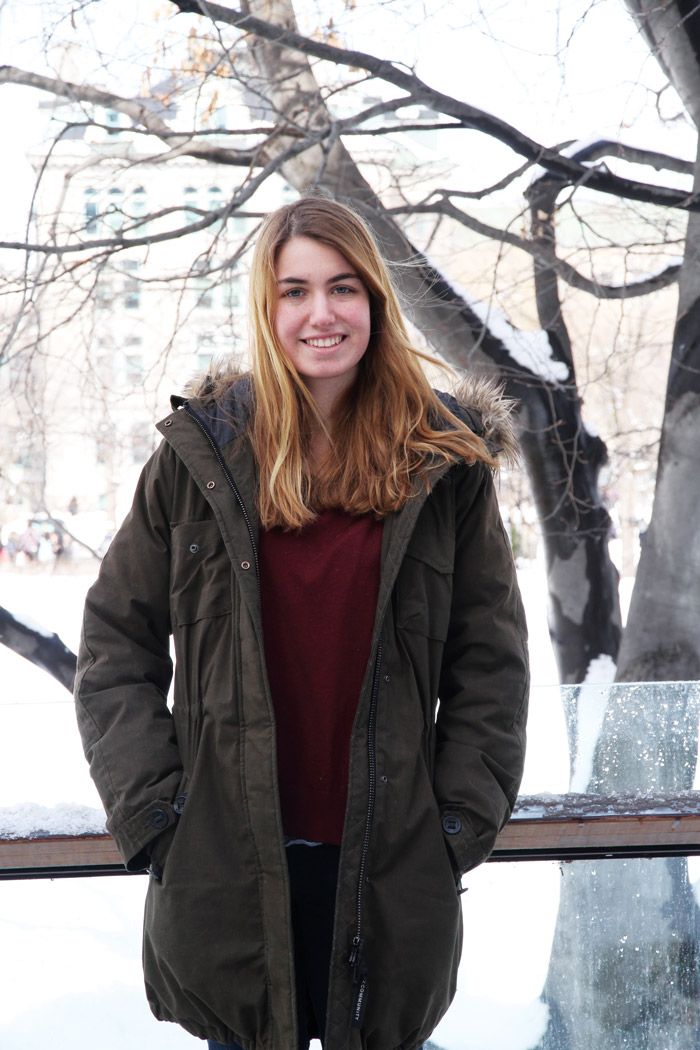Andrea Boza, a U2 double Economics and Psychology major, is interested in international development. Boza elaborated on her desire to study human economics and its influence on society.
“This type of research in human economics is something I [want] to further study,” Boza said. “I would love to help people by producing environments that lead to motivation, more engagement, and the belief that you can change […] For example, I was quite intrigued by a recent study [that showed that by] placing the fruits in a cafeteria a tiny bit higher, the consumption of the apple is improved by 30 per cent.”
Boza was recently enlightened by R.H. Thaler and C. R. Sustein’s book Nudge: Improving decisions about health, wealth and happiness, which focuses upon psychology and behavioural economics, two fields that Boza is highly interested in and would like to pursue in her future career.
“There are so many things in our daily life that we go about doing but don’t stop to think about,” she said. “This book really sheds light on how we are influenced by libertarian paternalism and choice architects without our awareness.”
Boza’s desire to improve the living conditions of communities in Latin America has inspired her to start a case competition and conference, the SLASummit.
“I’m one of the co-chair and co-founder of the SLASummit, a social entrepreneurship conference and case competition,” Boza said. “We want to give students the opportunity to implement sustainable, development projects in Latin America communities while raising awareness.”
The SLASummit is unique amongst other case competitions since it results in the real implementation of a project.
“We wanted to bring about a different model of case competition that was much more tangible,” Boza said. “Thus, we are bringing hundreds of students from Harvard, MIT, UPenn, McGill, and others, and will give them three very specific studies on communities in Mexico, Peru, and Ecuador. They will then have to come up with a project, compete in a case competition, and the winner is allocated $5,000 to make the project happen.”
Boza is an open-minded individual who is not afraid to stand up for her own opinions. Whereas most of her friends and family back home in Barcelona want bCatalonia’s independence from Spain, Boza deviates in her position.
“It’s tough because everyone back home is constantly trying to make me change my views and join the separatist movement, and I understand where they are coming from,” Boza said. “I think the problem is that the issue is very much tied to the whole idea of language. Culture’s impact on identity [is] making people take the issue very personally. Furthermore, in the past, the government has been very obstinate and hasn’t listened to these voices, which has simply fuelled the movement along.”
Boza explained how her living in Quebec has influenced her opinions.
“Coming to Quebec and seeing how the issue is being dealt with here has led me to take a different perspective, and I believe that Spain and Catalonia can still benefit from their union,” she said.
Boza wants to use her knowledge in human economics and interest in international development to look for sustainable ways for individuals to pursue engagement and innovation within communities.
“I would like to find effective ways to help people by producing environments that lead to motivation and more engagement,” she said. “I find the beauty of the summit and case competition lies in the little restriction the participants have, since I believe fewer limits promotes creativity.”
McGill Tribune: What is the best Place on earth?
Andrea Boza: La Costa Brava, a rocky coast.
MT: What is your favourite food?
AB: Chocolate
MT: Which TV series would you like to star in?
AB: Friends
MT: Do you have any hidden talents?
AB: I’m a really good multi-tasker.








